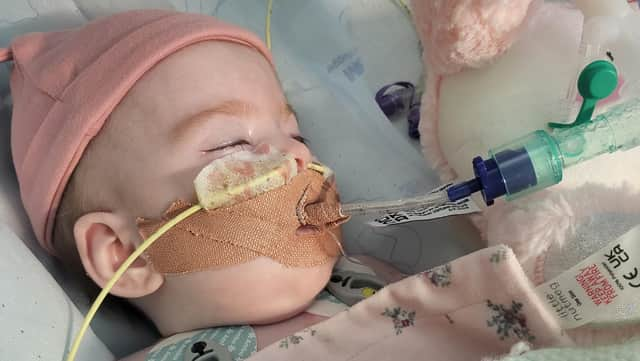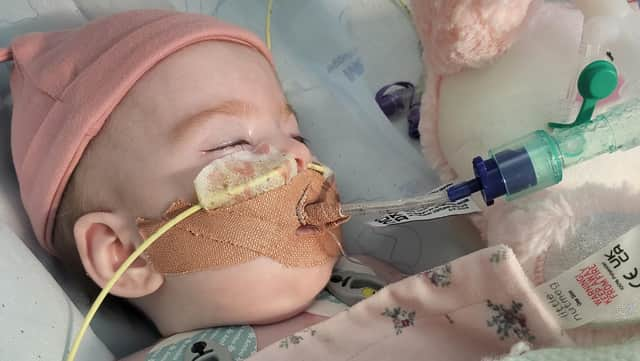Indi Gregory: "Dying" Nottingham child's hospital treatment up in the air at High Court


A doctor has told a High Court judge of the “terrible reality” facing a critically ill baby at the centre of a life-support treatment case.
The specialist on Monday told Mr Justice Peel that seven-month-old Indi Gregory, who is being treated in Nottingham, was “dying”. He said keeping her on a ventilator would “prolong matters”.
Advertisement
Hide AdAdvertisement
Hide AdThe doctor said staff treating Indi – who has mitochondrial disease, a genetic condition that saps energy from the body’s cells – at the Queen’s Medical Centre in Nottingham had done the best they could and were “very sad”.


Hospital bosses want Mr Justice Peel to rule that doctors can lawfully limit treatment provided to Indi. Meanwhile Indi’s parents Dean Gregory and Claire Staniforth, who are both in their 30s and from Ilkeston, Derbyshire, want treatment to continue. Mr Justice Peel is considering evidence at a private trial in the Family Division of the High Court in London.
“We feel very sad,” the doctor, who cannot be named in media reports, told Mr Justice Peel.
“She is a little girl we have tried to treat to the best of our abilities. The terrible reality is that she is dying.”
Advertisement
Hide AdAdvertisement
Hide AdThe doctor said “further ventilation” would “prolong matters”. Bosses at Nottingham University Hospitals NHS Foundation Trust, who have responsibility for Indi’s care, have asked the judge to make decisions.
Barrister Emma Sutton KC, who is leading the trust’s legal team, has told the judge that Indi is “critically” ill. She has told how Indi has a “devastating neurometabolic disorder”, which is “exceptionally rare”.
Mr Justice Peel is considering evidence behind closed doors but has allowed journalists to attend the hearing and ruled that Indi, her parents, and the hospital can be named in reports.
He ruled that medics treating Indi – and a guardian appointed to represent her interests – could not be named. The specialist described himself as an “expert” in the treatment of seriously ill children.
Advertisement
Hide AdAdvertisement
Hide AdHe told Mr Justice Peel that on the unit where he was based there were “15 to 20” deaths a year.
The doctor said staff dealt with “child life cases almost on a monthly basis”.
He said Indi’s case was “really difficult”.
Comment Guidelines
National World encourages reader discussion on our stories. User feedback, insights and back-and-forth exchanges add a rich layer of context to reporting. Please review our Community Guidelines before commenting.
